Respiratory Virus Prevention – 6 Tips
The Respiratory Virus Prevention Toolkit provides resources and downloadable materials to help you educate your community about ways to lower their chances of getting and spreading respiratory viruses like influenza (flu), COVID-19 and RSV (Respiratory Syncytial Virus).
Additional Resources:
Communications toolkits
CDPH Material Co-brand Disclaimer
Local health jurisdictions (LHJs) and community-based organizations (CBOs) may co-brand materials created by CDPH (those in CDPH Office of Communications Toolkits) by adding their agency logo next to or near the CDPH logo. Be sure there is ample space between the two logos. Materials may not be altered or edited in any other way, including removal or adjustment of the CDPH logo.
Fact Sheets
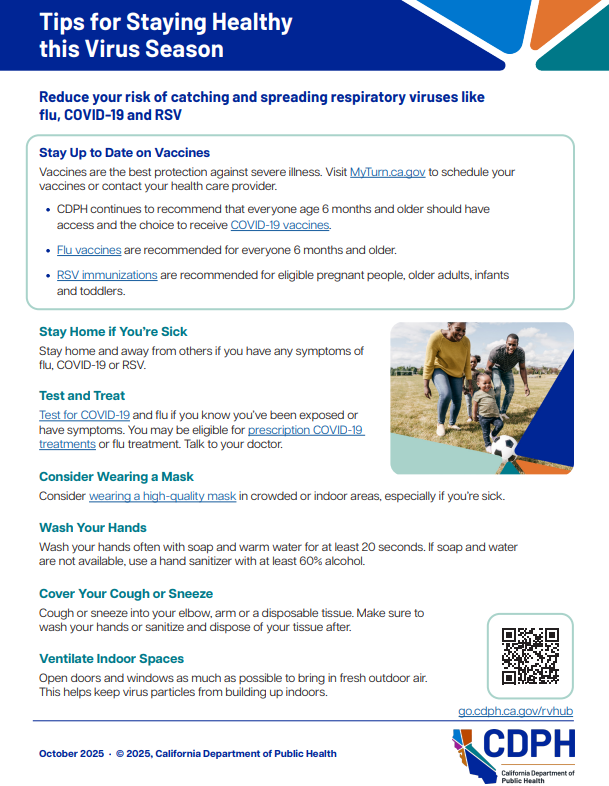

Protect Yourself from Respiratory Viruses (PDF)
Video
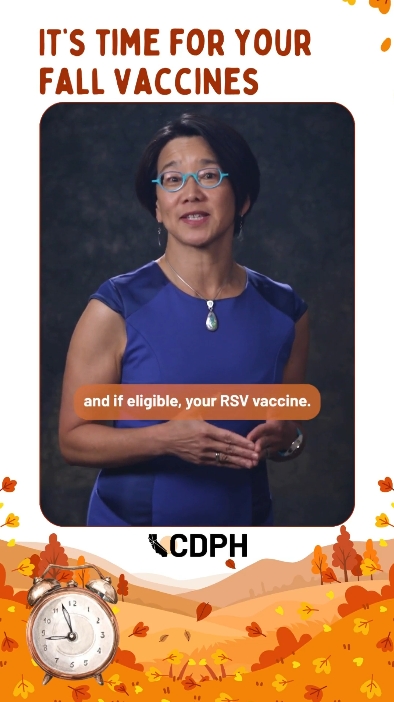
Don’t let respiratory viruses slow you down this cold and flu season.
Watch and share on Facebook (English): facebook.com/reel/1345498960457780
Social Media
Share the following images and messages on social media. Click on each image to enlarge, then right click and “save as.”
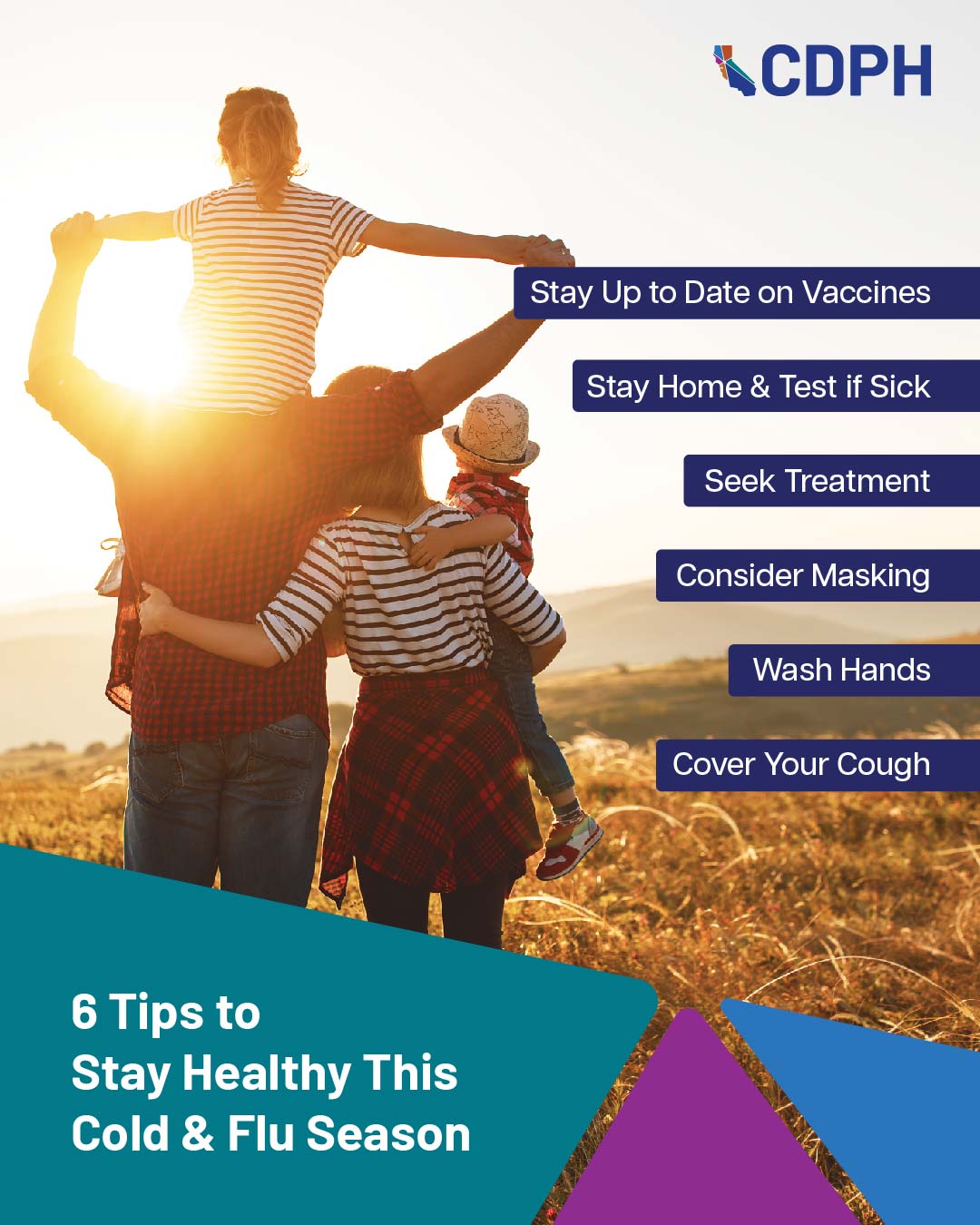
|
Suggested Messaging:
Respiratory viruses like flu, COVID-19 and RSV spread more easily in the fall and winter. Avoid getting sick this cold and flu season. Do your part to keep yourself and your community healthy.
Visit MyTurn.ca.gov to schedule your vaccines or talk with a health care provider. Learn more: go.cdph.ca.gov/respiratory-viruses
|
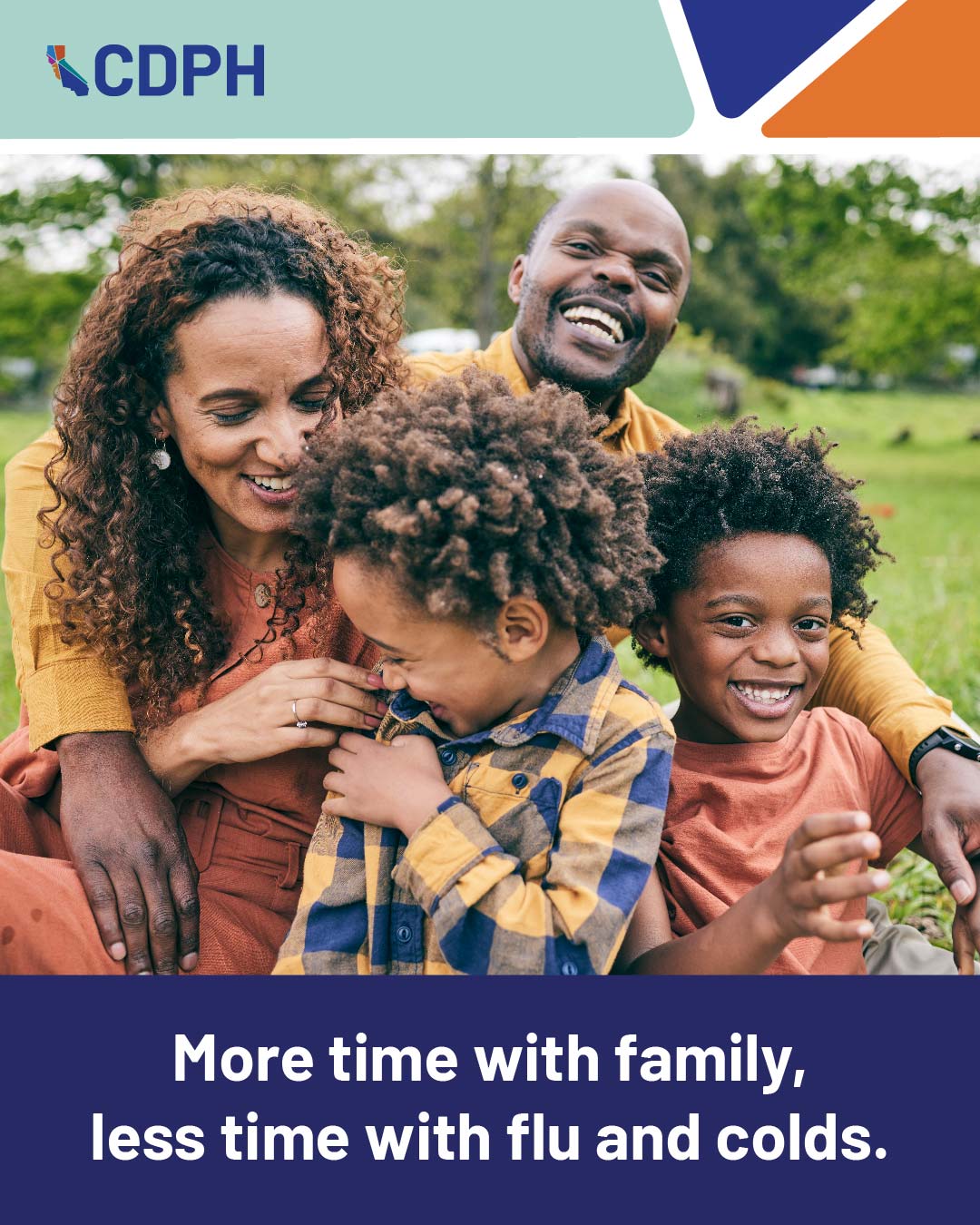
|
Suggested Messaging:
Protect your family from catching respiratory viruses like flu, COVID-19 and RSV by following these tips:
- Stay up to date on your flu, COVID-19 & RSV vaccines.
-
Stay home and test if you’re sick.
-
Seek prescription treatments from a health care provider if you test positive for flu or COVID-19.
-
Consider wearing a mask in crowded indoor spaces.
-
Wash your hands frequently.
- Cover your coughs and sneezes.
- Ventilate indoor spaces.
Visit MyTurn.ca.gov to schedule your vaccines or talk with a health care provider. Learn more: go.cdph.ca.gov/respiratory-viruses
|
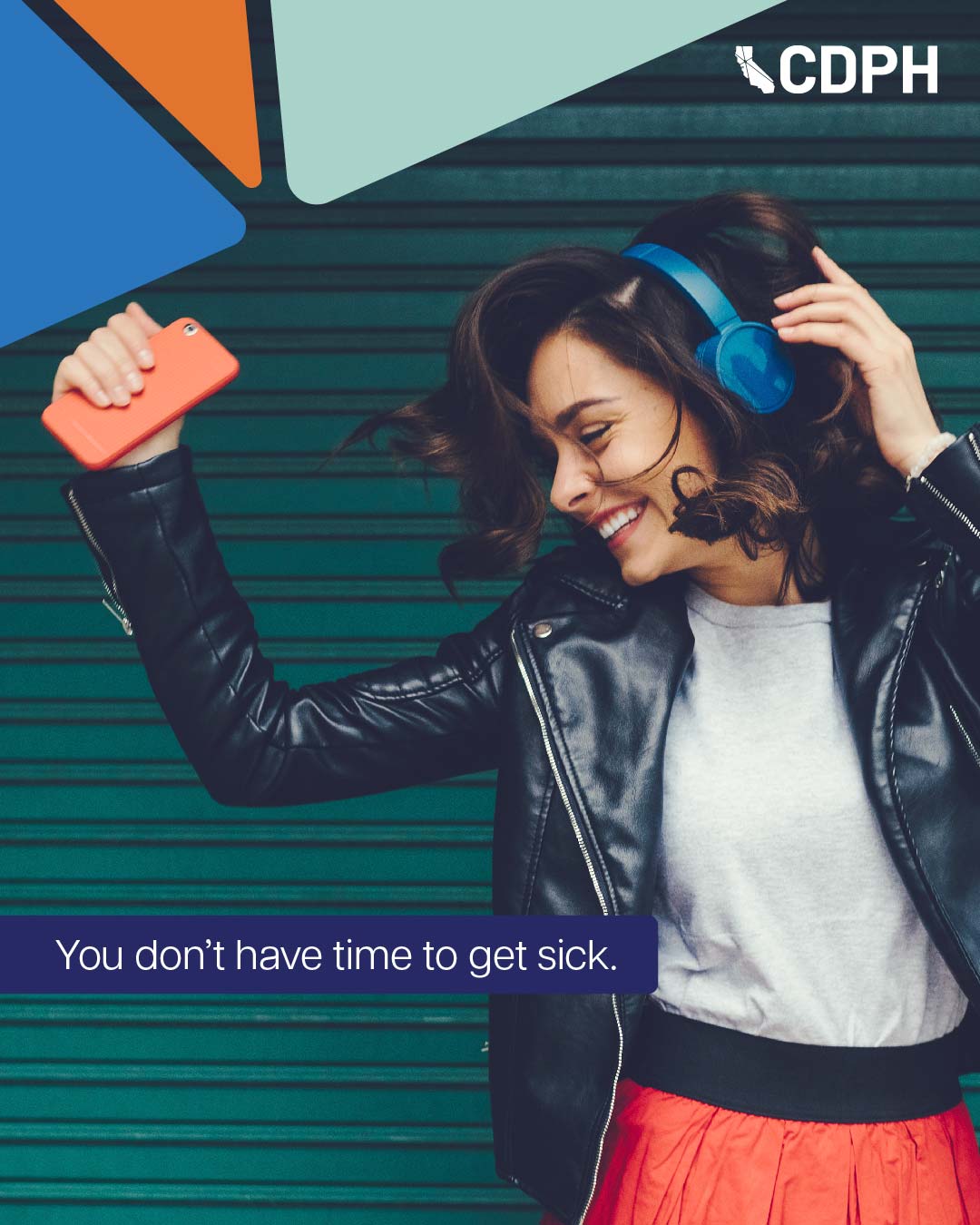
|
Suggested Messaging:
Don’t let flu, COVID-19 and RSV slow you down.
- Stay up to date on vaccines.
-
Stay home and test if you’re sick.
- If you test positive for COVID-19 ask your doctor if you qualify for prescription treatments.
- Consider masking indoors.
-
Wash your hands and cover your cough.
-
Ventilate indoor spaces.
Visit MyTurn.ca.gov to schedule your vaccines or talk with a health care provider. Learn more: go.cdph.ca.gov/respiratory-viruses
|
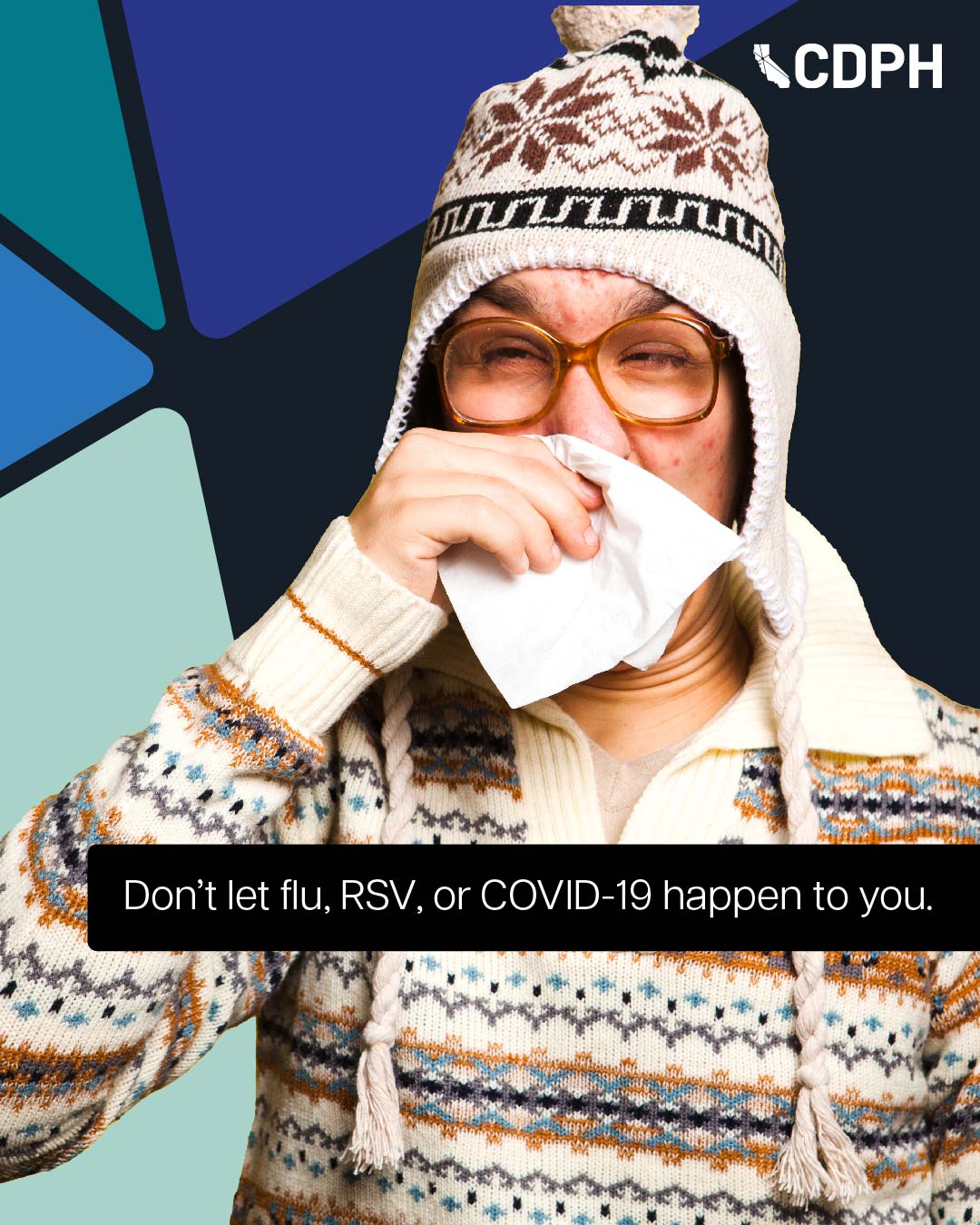
|
Suggested Messaging:
Don’t let flu, COVID-19 and RSV happen to you!
-
Stay up to date on vaccines.
- Stay home and test if you’re sick.
- If you test positive for COVID-19 or flu ask your doctor if you qualify for prescription treatments.
- Consider masking indoors.
- Wash your hands and cover your
Visit MyTurn.ca.gov to schedule your vaccines or talk with a health care provider. Learn more: go.cdph.ca.gov/respiratory-viruses
|
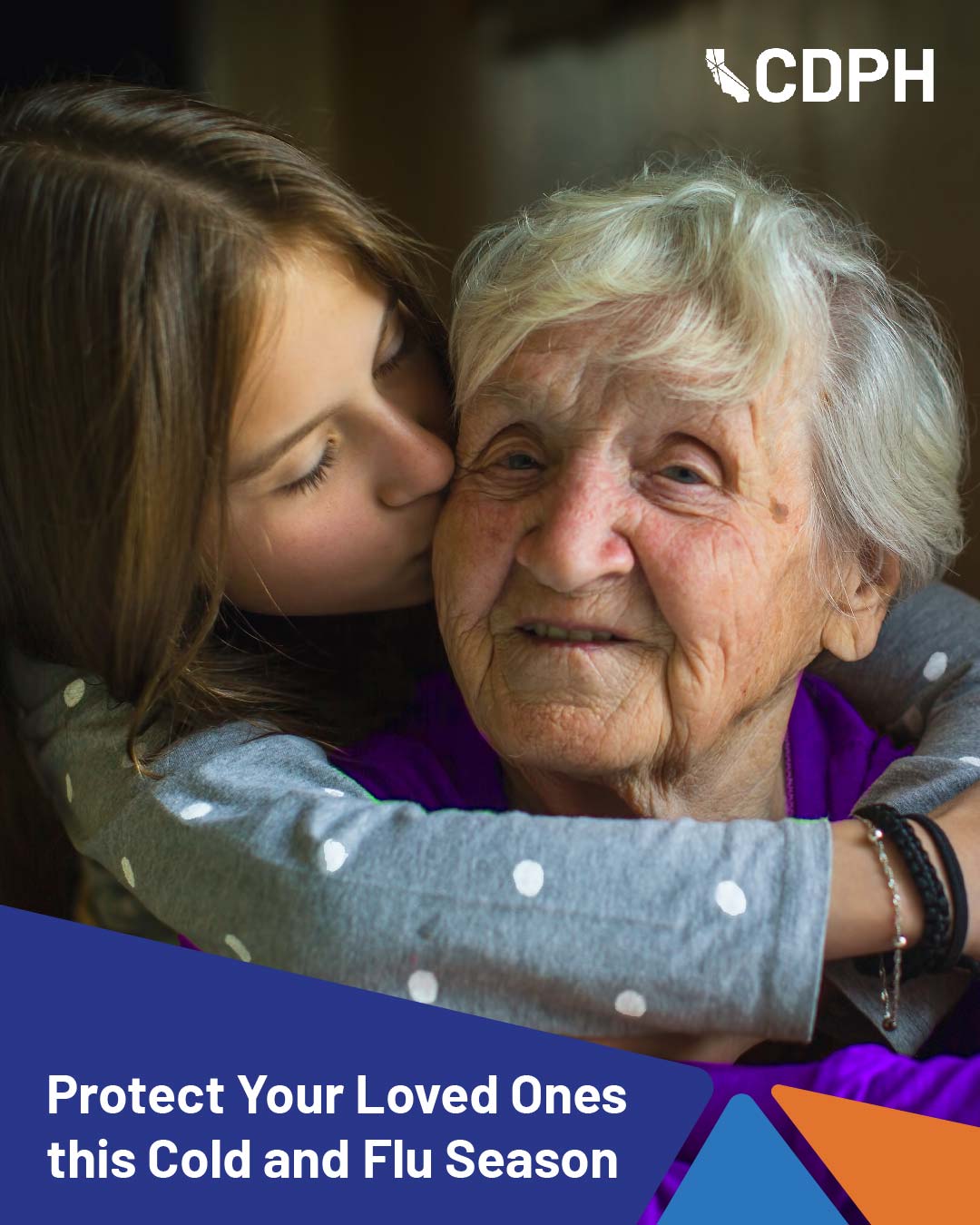
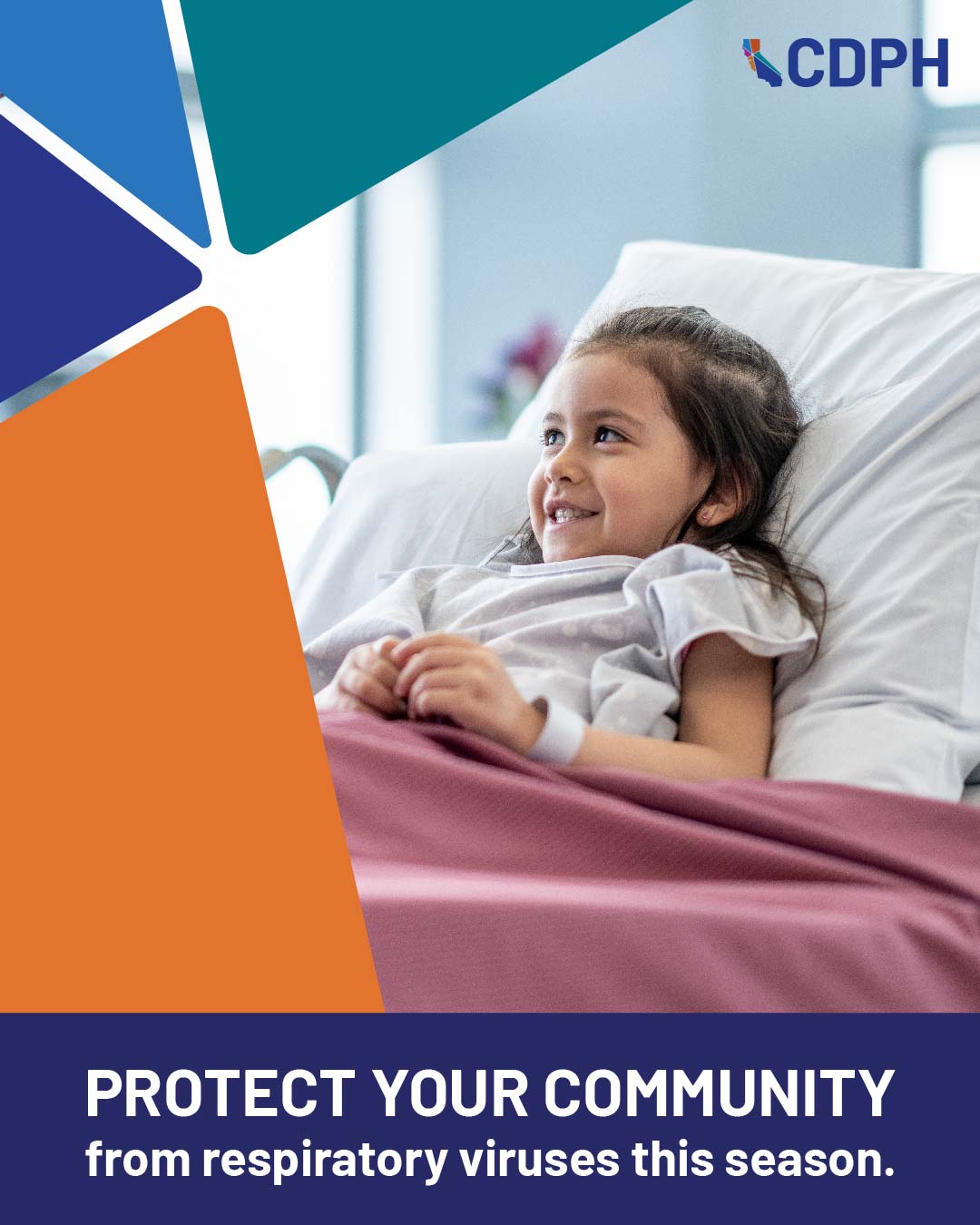
|
Suggested Messaging:
Certain people are at higher risk of getting very sick from respiratory infections, especially flu, COVID-19 and RSV. These include:
-
Older adults
- Young children
- People who are pregnant
- People with weaker immune systems
- People with certain disabilities or underlying health conditions
Protect your community by taking extra precautions, like wearing a mask, around those at higher risk. If you’re feeling sick, talk with a health care provider about testing and prescription medications that treat COVID-19 and flu.
|
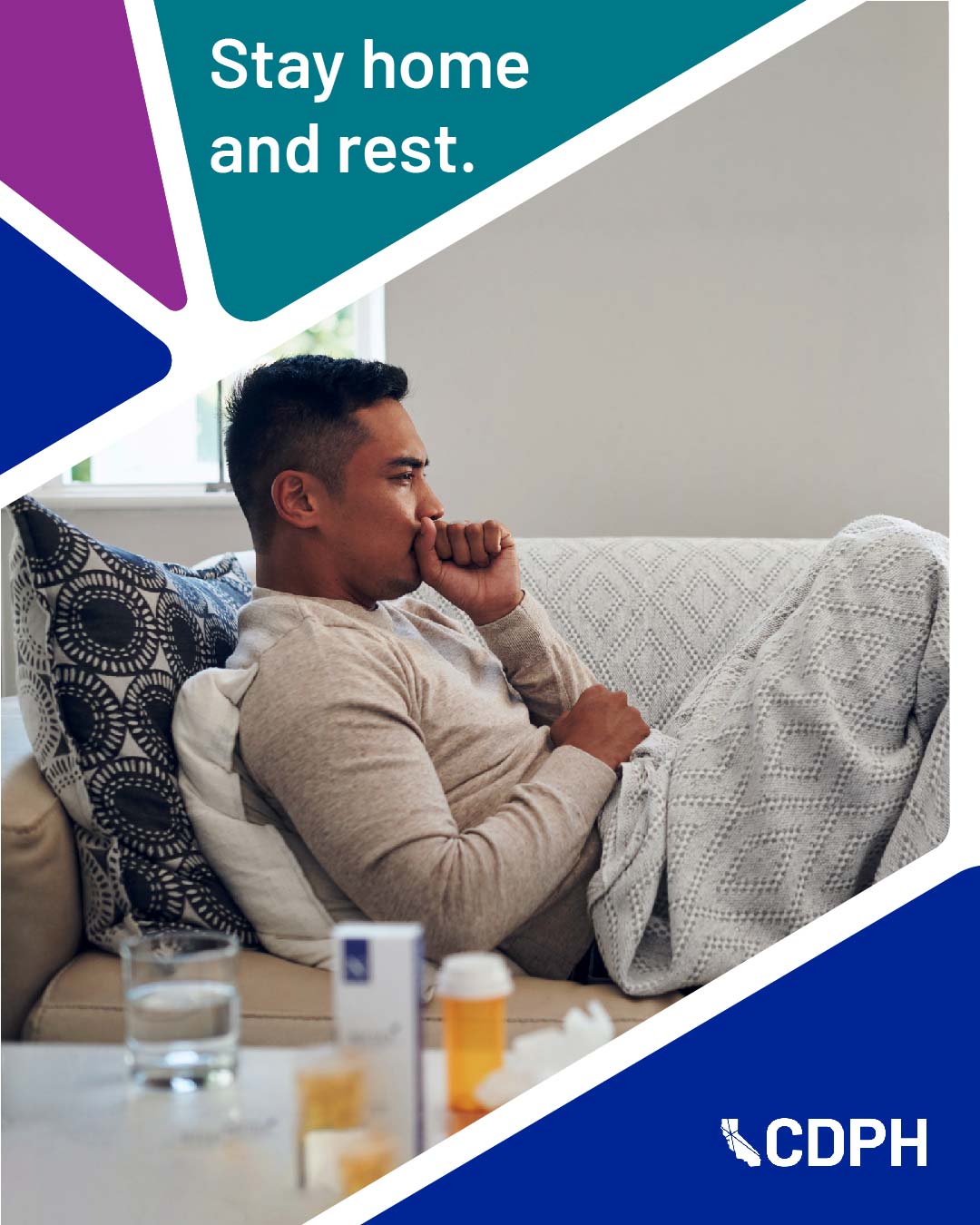
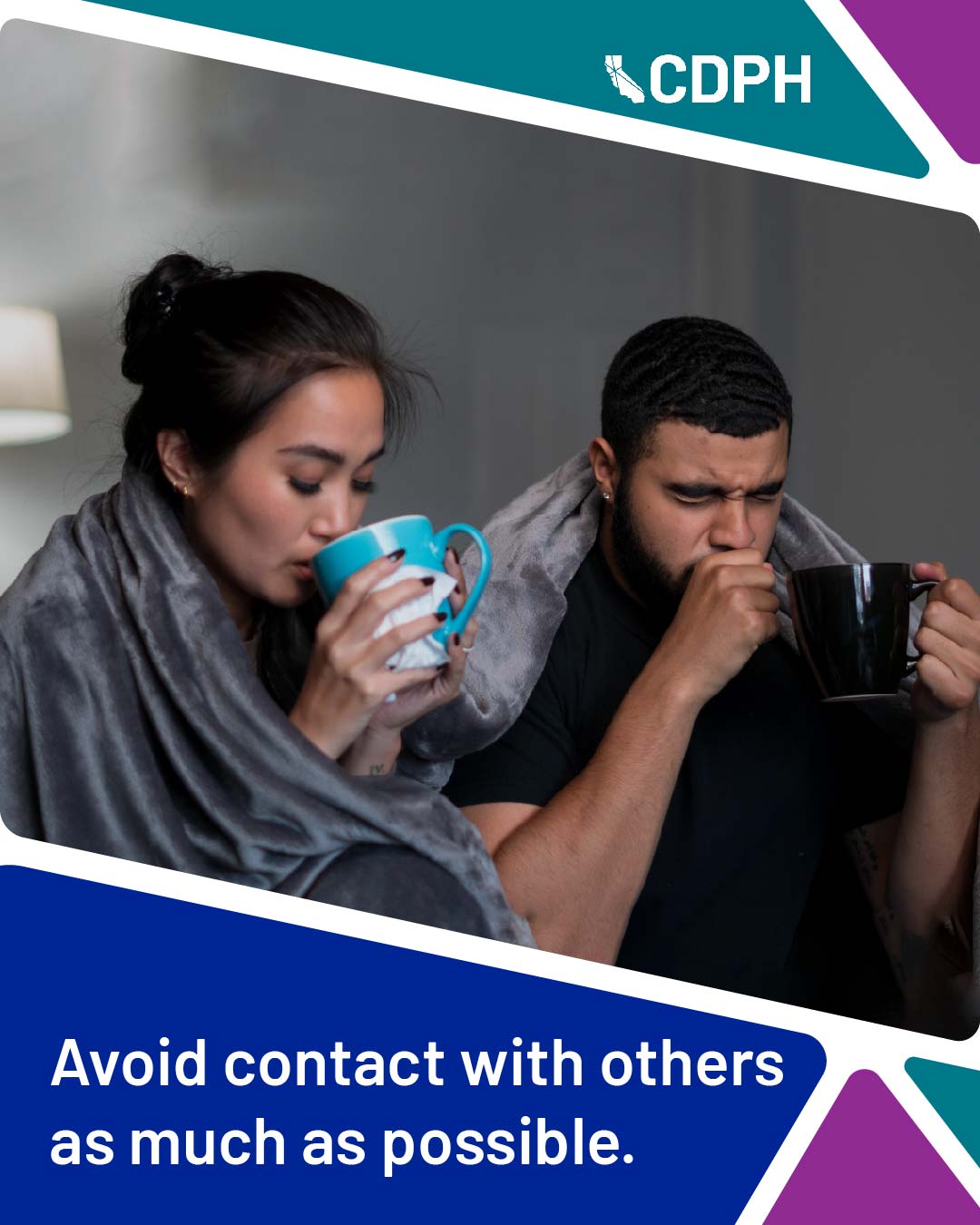 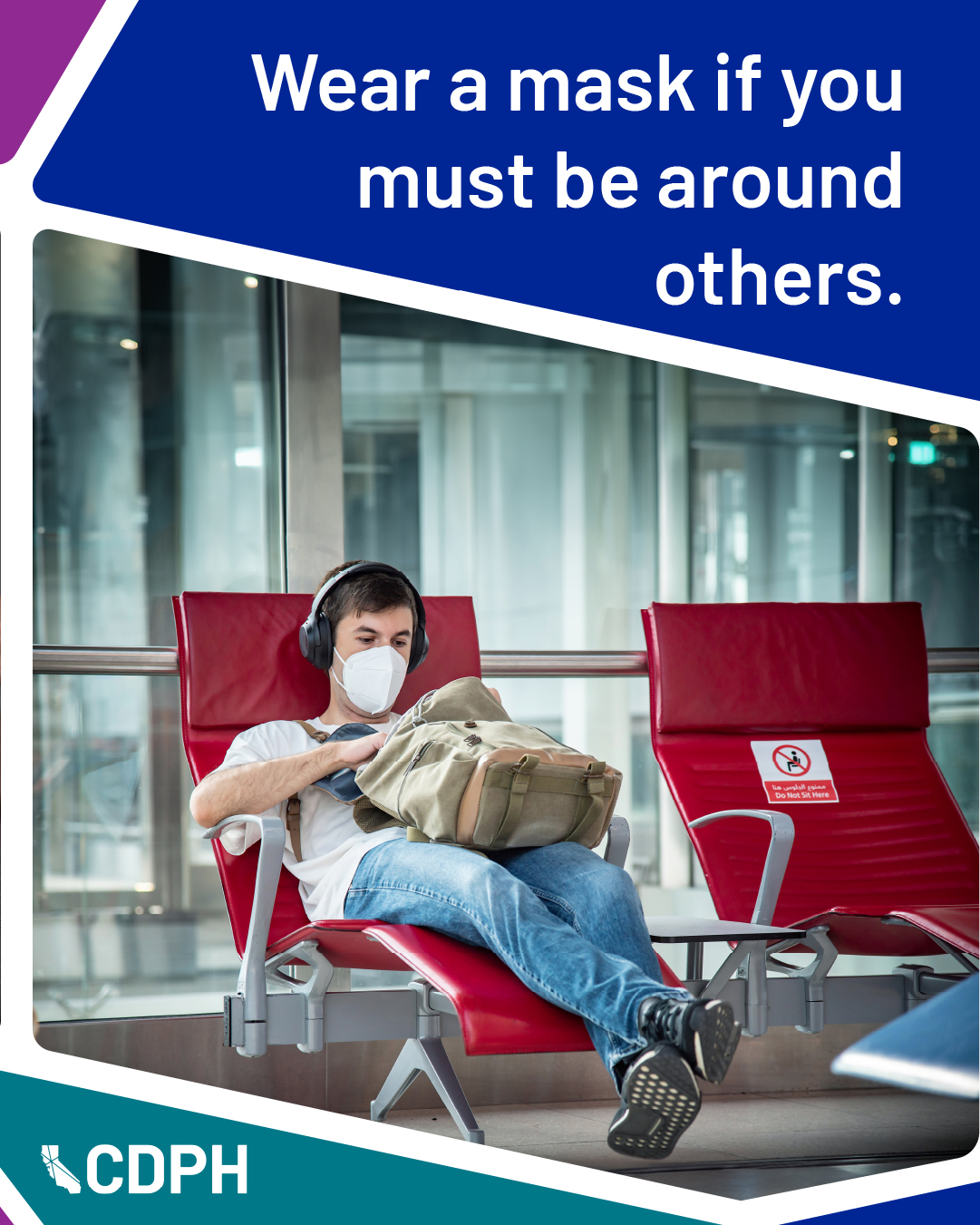 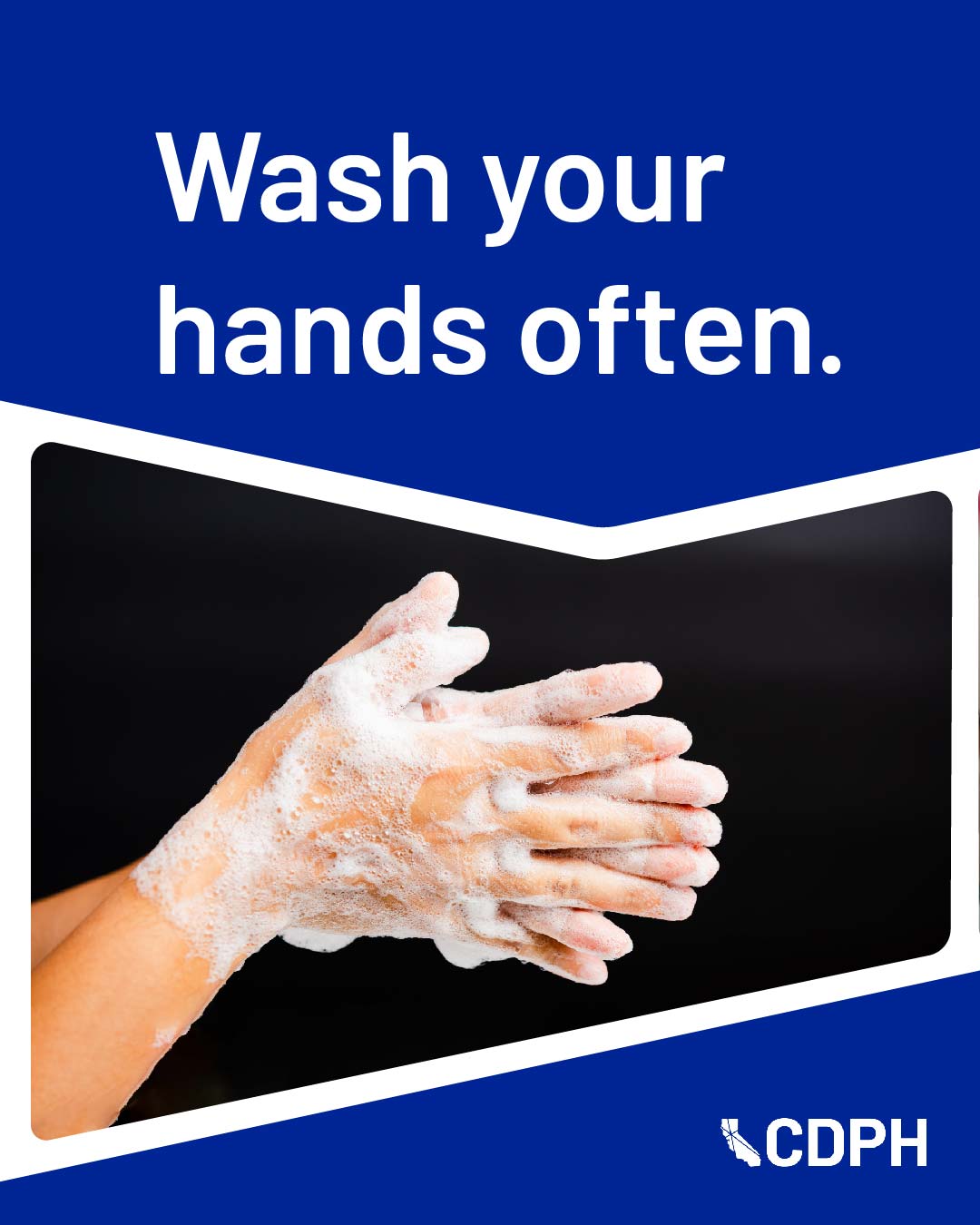
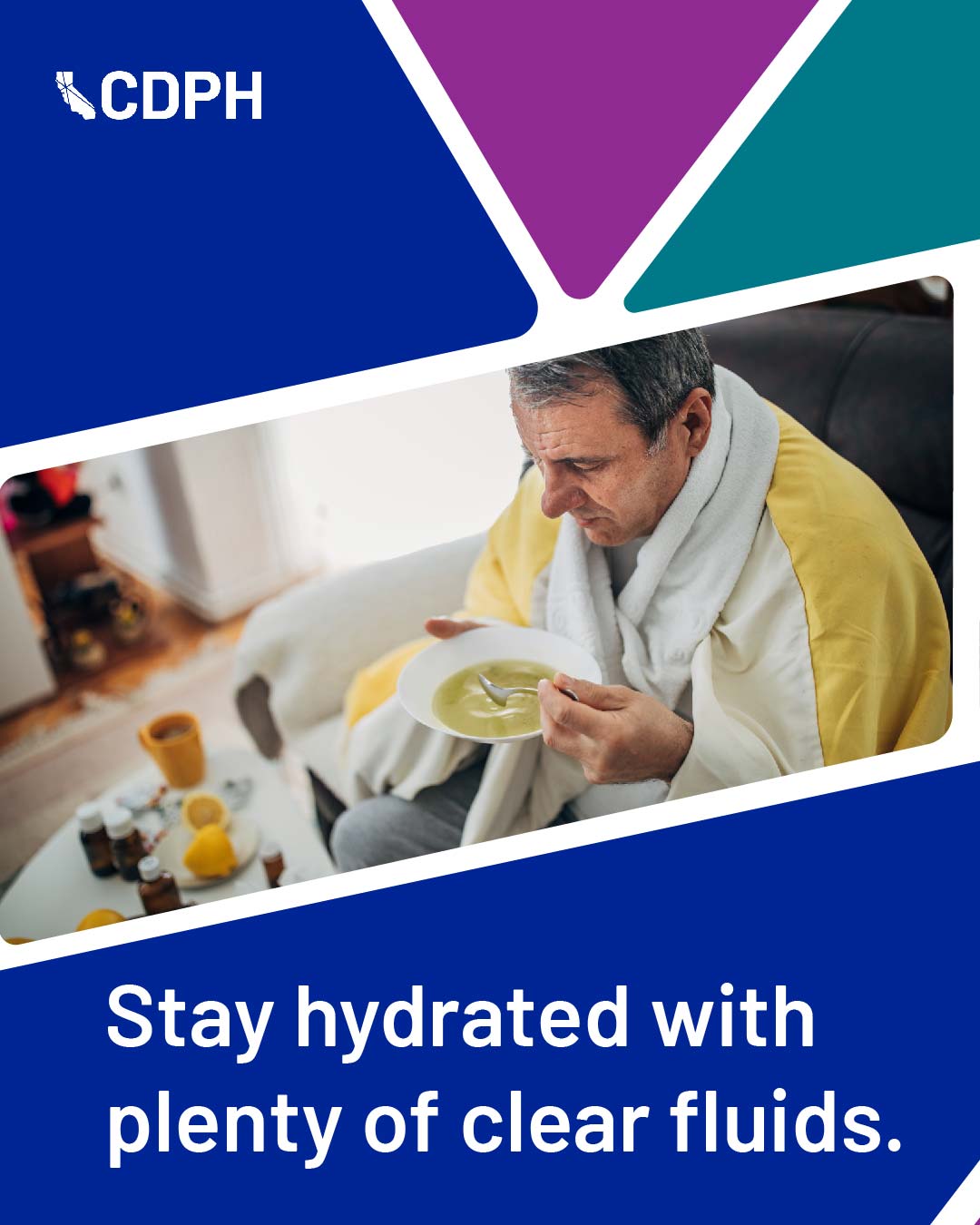


|
Suggested Messaging:
Help stop respiratory viruses like COVID-19, flu and RSV. If you’re feeling sick, take these steps to protect yourself and others:
- Stay home and rest.
- Avoid contact with other people as much as possible, especially those at higher risk for serious illness.
- Wear a mask if you must be around others.
- Wash your hands often with soap and water. If soap and water are unavailable, use a hand sanitizer with at least 60% alcohol.
- Stay hydrated with plenty of clear fluids.
- Cover your cough or sneeze.
- Talk to a health care provider about treating aches and fever with over the counter or prescription medications.
Bluesky/X:
Help stop respiratory viruses like COVID-19, flu and RSV. If you’re feeling sick, take these steps to protect yourself and others.
|
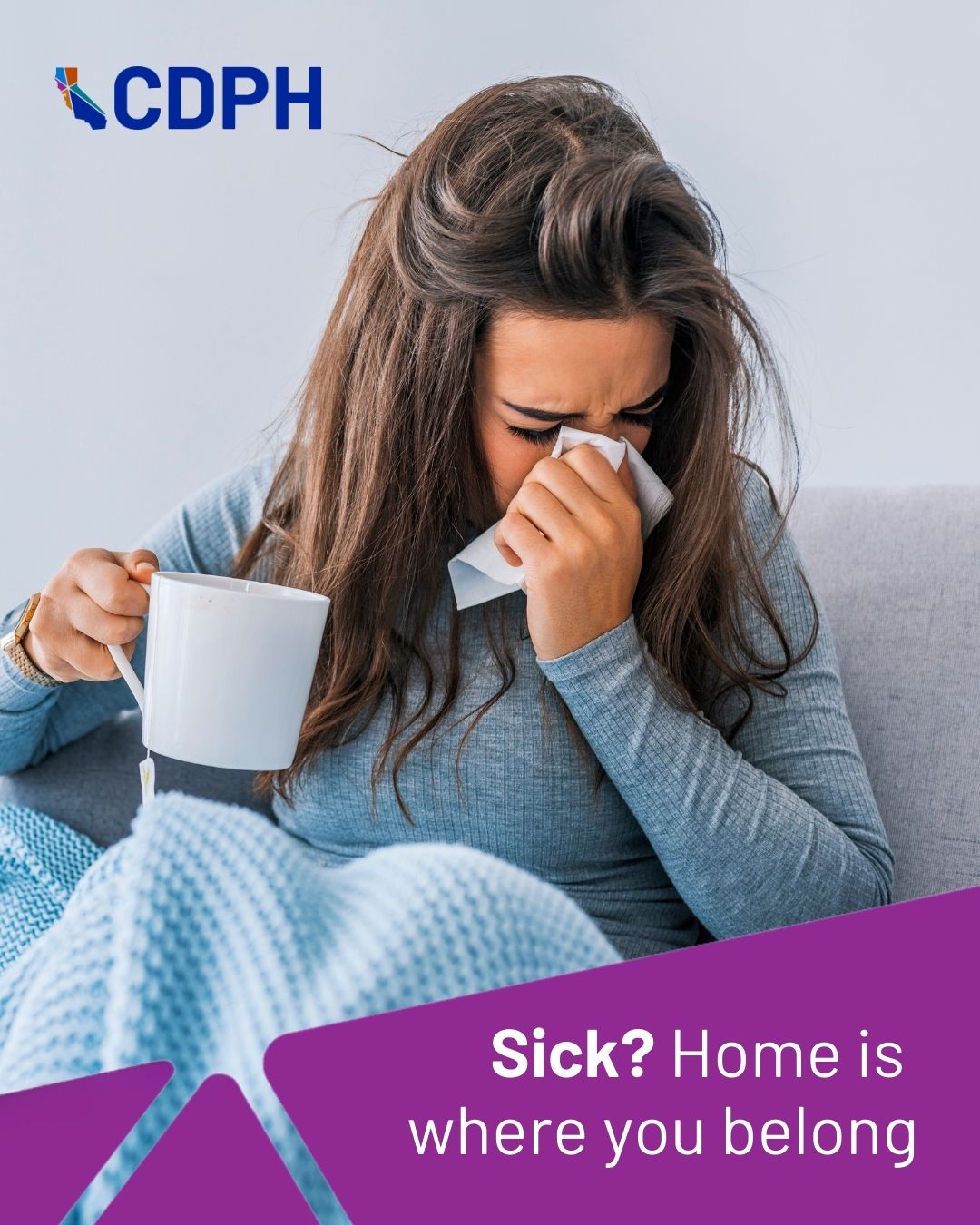
|
Suggested Messaging:
Feeling sick? Stay home and away from others so you don’t spread respiratory viruses like flu, COVID-19 and RSV. Call your doctor - they might recommend a prescription treatment to prevent your illness from becoming serious.
|
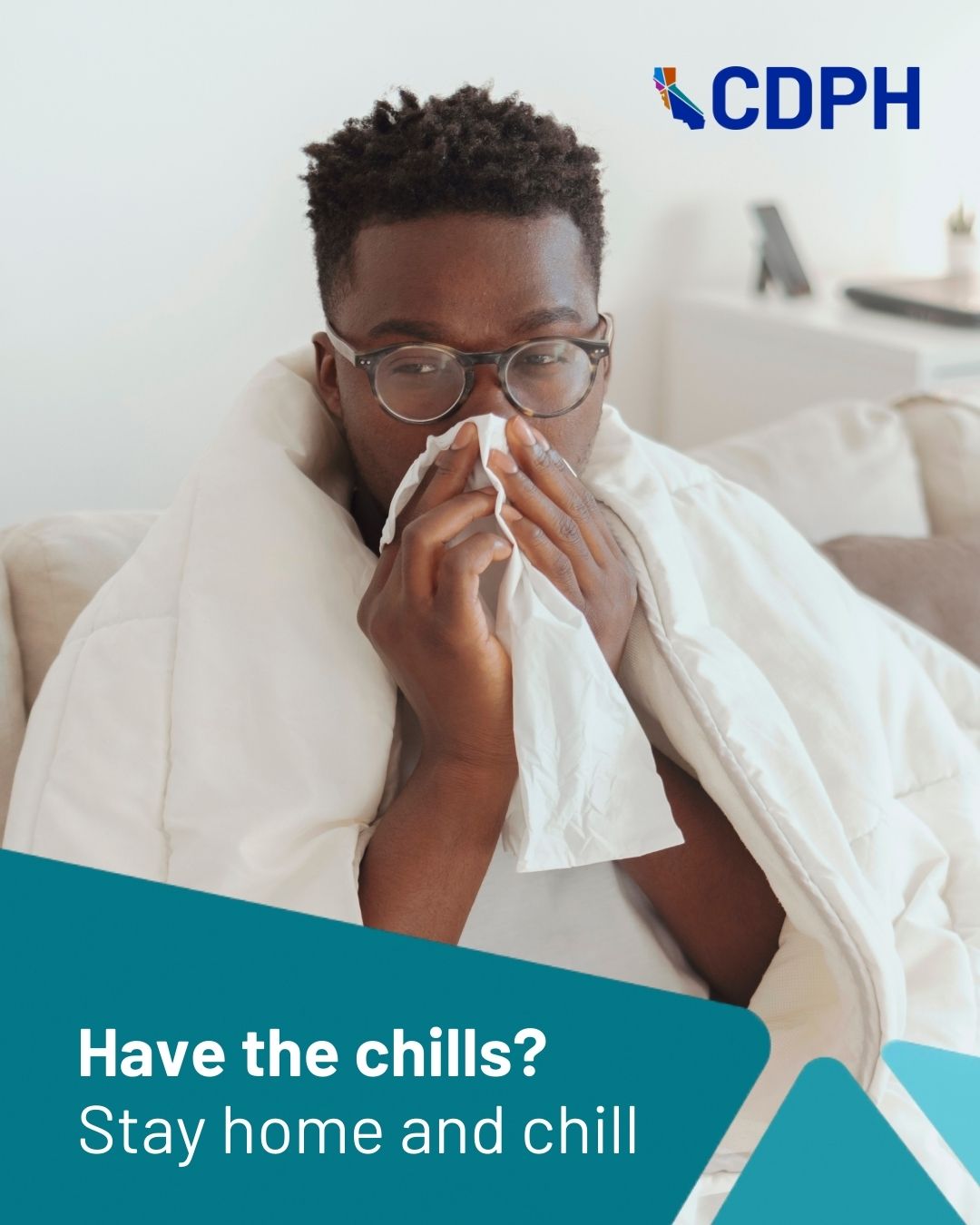
|
Suggested Messaging:
Feeling sick? Stay home and away from others so you don’t spread respiratory viruses like flu, COVID-19 and RSV. Call your doctor - they might recommend a prescription treatment to prevent your illness from becoming serious.
Learn more: go.cdph.ca.gov/respiratory-viruses
|
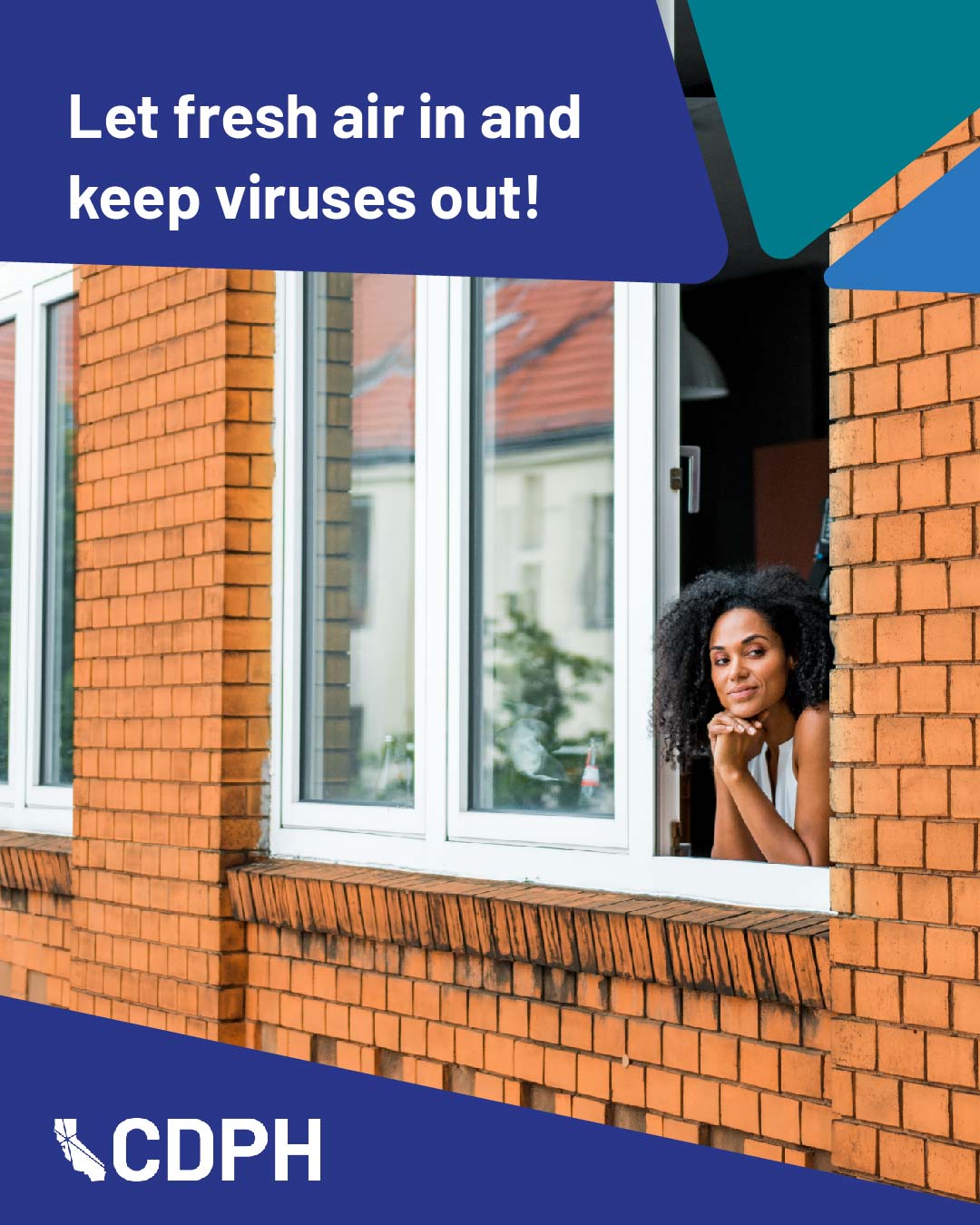
|
Suggested messaging:
Reduce respiratory viruses indoors by:
- Opening windows and doors when possible
- Using fans to bring fresh air inside
- Keeping heating and air systems on
- Using portable air filters
|
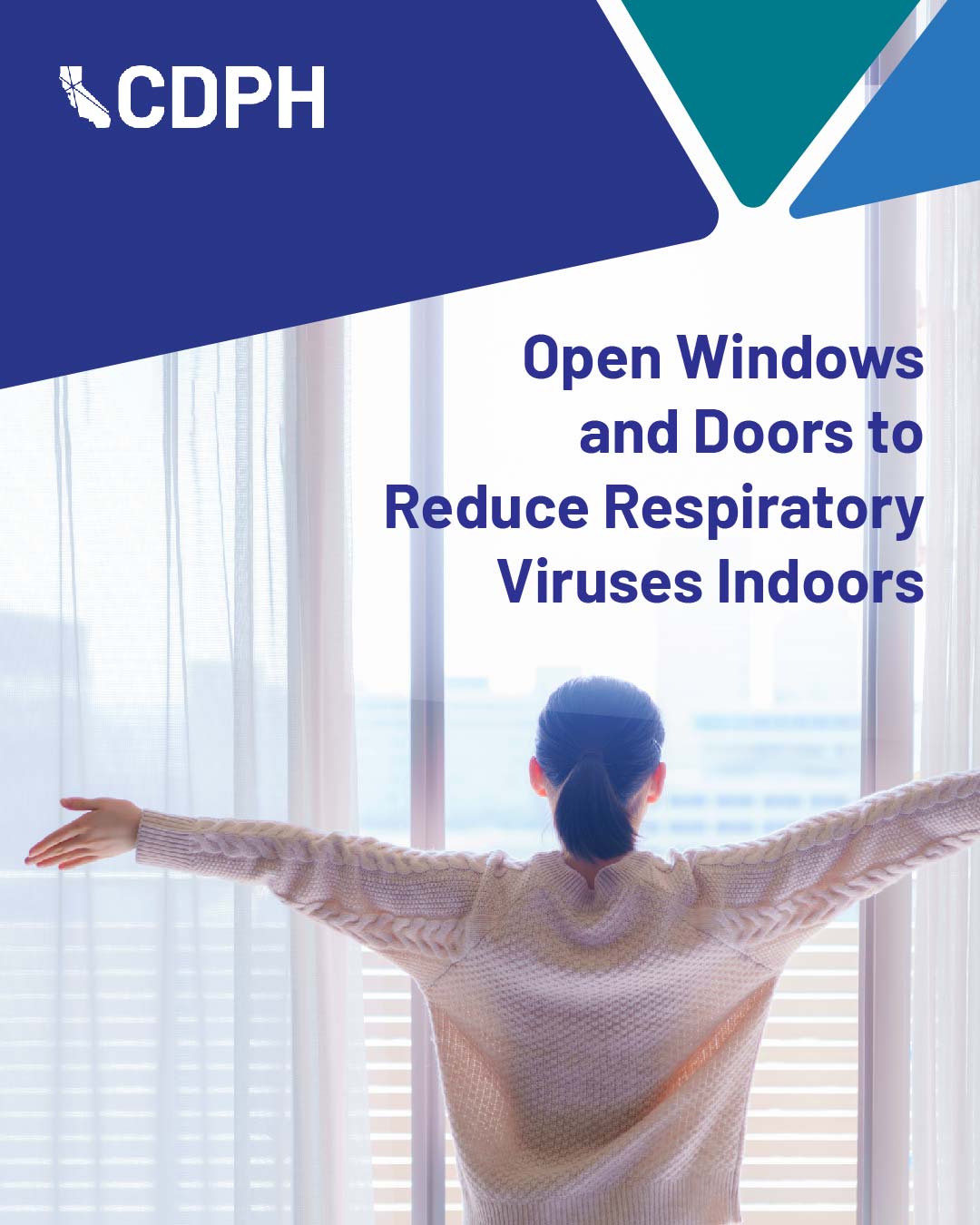
|
Suggested messaging:
If the air quality is safe outside, open windows and doors to allow fresh air inside and prevent viruses from building up.
Learn more about reducing virus risk indoors: go.cdph.ca.gov/indoor-air-quality
|
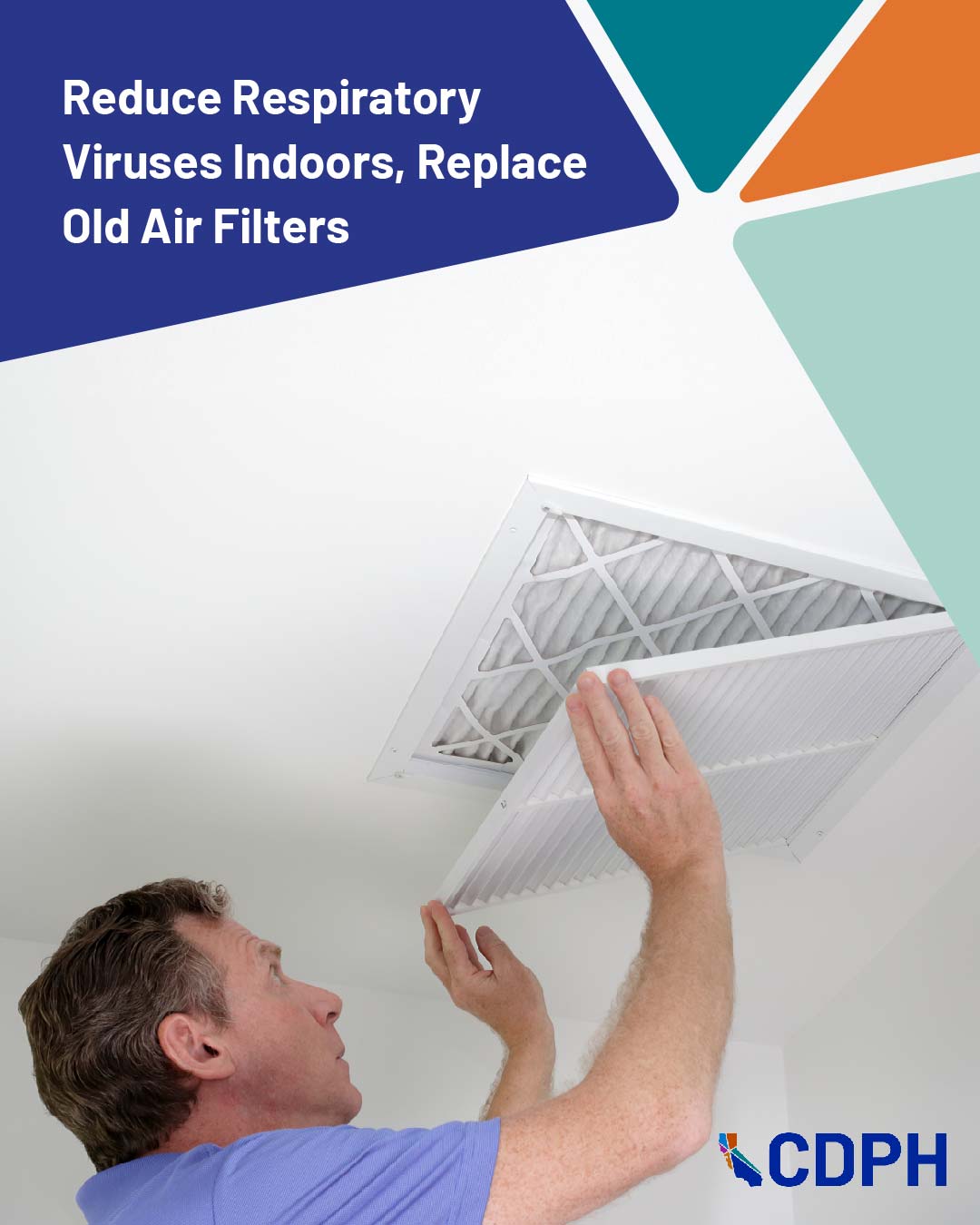
|
Suggested messaging:
Reduce respiratory viruses (like COVID-19, flu and RSV) by replacing dirty air filters in your heating and air system.
Learn more about reducing virus risk indoors: go.cdph.ca.gov/indoor-air-quality
|